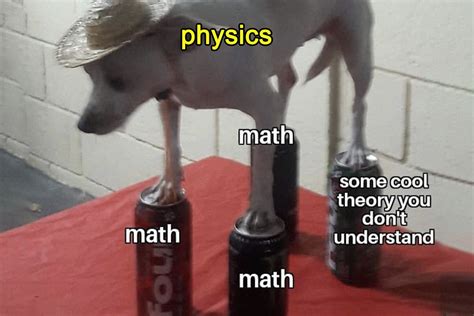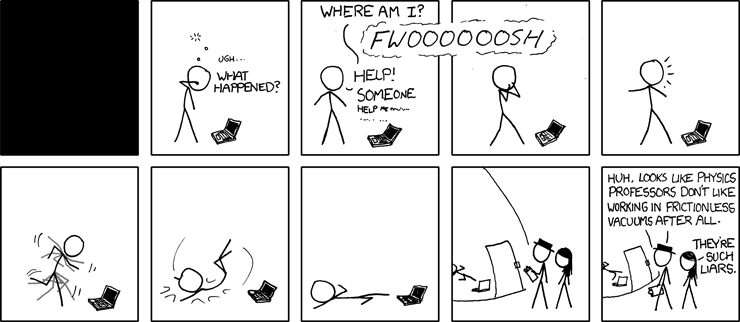It do be like that
-
[email protected]replied to [email protected] last edited by
Physics is basically "some guy way cooler and way nerdier than you 100 years ago did some experiments observing this law, and because of that we can use really hard math to predict the whole universe."
-
-
[email protected]replied to [email protected] last edited by
You're not wrong, but we're doing the experiments to test the theory, and that requires some math
-
the cool theory you don’t understand is very likely also math
-
[email protected]replied to [email protected] last edited by
Or: We're using math to summarise what the experiments have said so far. And then using that to extrapolate what might happen in the next experiment.
-
[email protected]replied to 🇦🇺𝕄𝕦𝕟𝕥𝕖𝕕𝕔𝕣𝕠𝕔𝕕𝕚𝕝𝕖 last edited by
Plenty of physics sub-fields are still led by experiments, such as condensed matter physics. I don't know if your statement applies to anything other than particle physics?
-
How relevant is this to modern Physics?
As far as I know, modern math is mostly dealing with set theory and some imaginary 17D pringles in empty space, while modern physics is dealing with some imaginary 17D pringles in... uh...
Well, to put it this way, if decent writing is a prerequisite for doing math, does that mean that all math is essentially just applied poetry?
-
Physics is just applied math and math is just abstract physics without universal constraints. Both are just two sides of the same coin that is universal logic, which sees fundimental abstract concepts and physical structures as equally important in its machinery. Maybe their distinction breaks down at some level of reality. Thanks to Gödel's incompleteness theorem at least we know we will never really have a complete picture of the truth of it.
-
[email protected]replied to [email protected] last edited by
Some very specific experiments, precise and weird enough to produce some truly abstract results and hints of things like electron spin, neutron decay via the Weak Force, photon entanglement.
Or out in the field - imagine hiking to the top of Ben Nevis in Scotland, then going up a further couple of kilometers on a balloon, carrying a camera and a vacuum chamber with an alcohol gas cloud within, to photograph the trajectories and interactions of mysterious particles from space.
Back at Edinburgh or Manchester, wearing your tuxedo on weeknights, for an evening of drinks at the gentlemen's club, discussing the latest results and implications with your peers, over single malts and cigars.
-
[email protected]replied to [email protected] last edited by
What do you mean by modern physics, exactly?
In general, even simple problems can get very messy very fast without simplifying the scenario.


